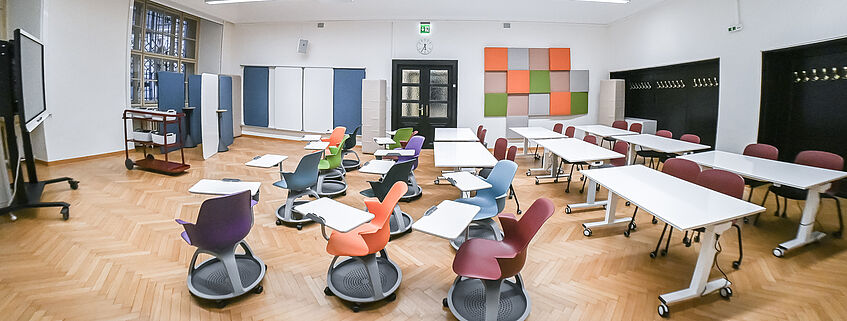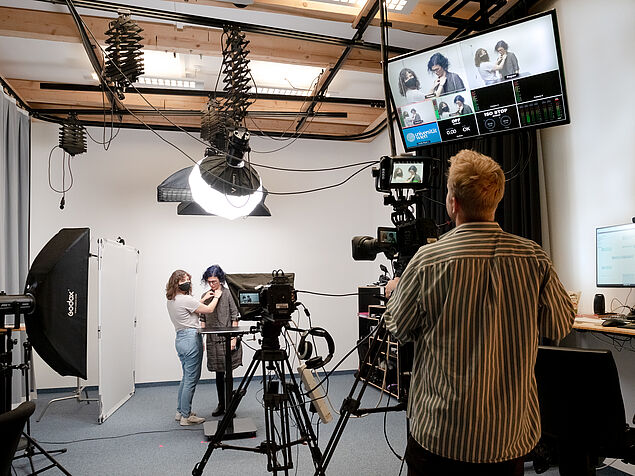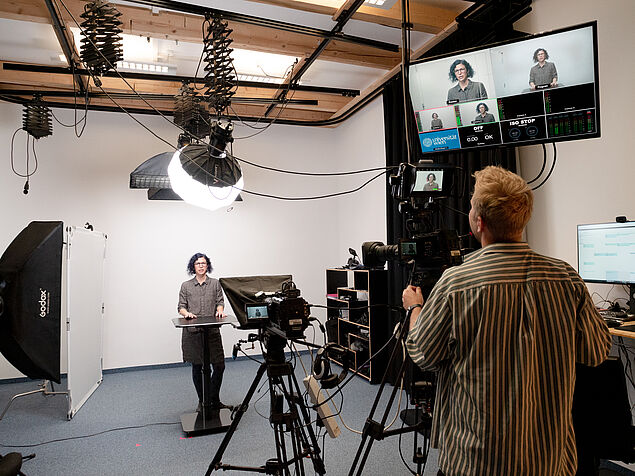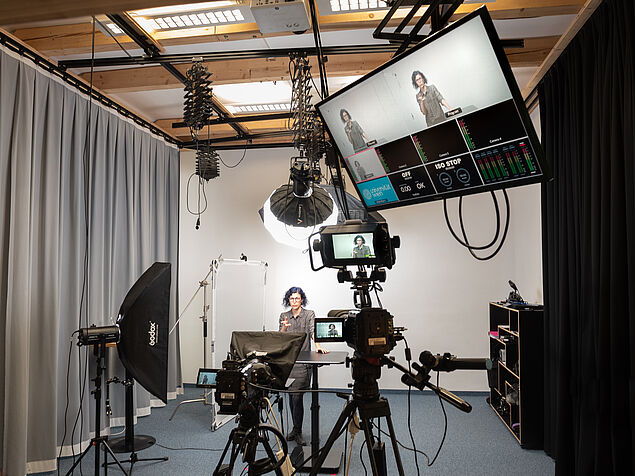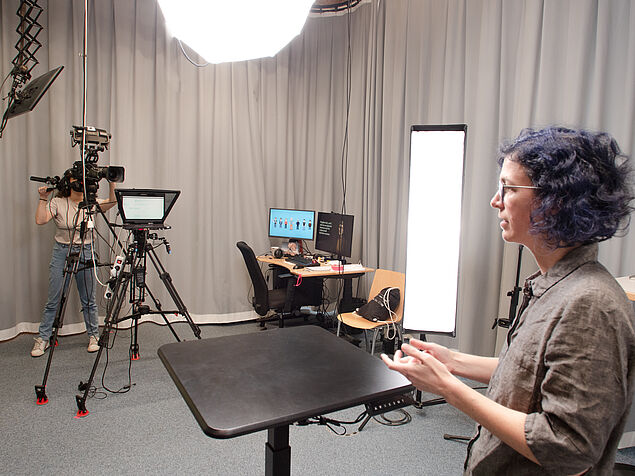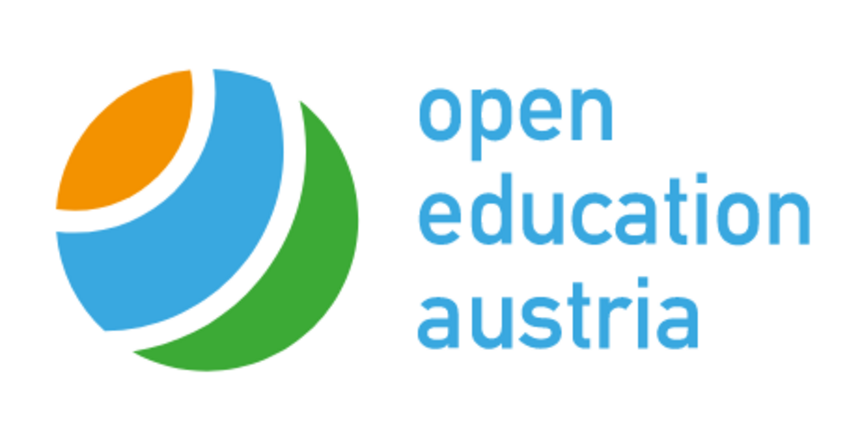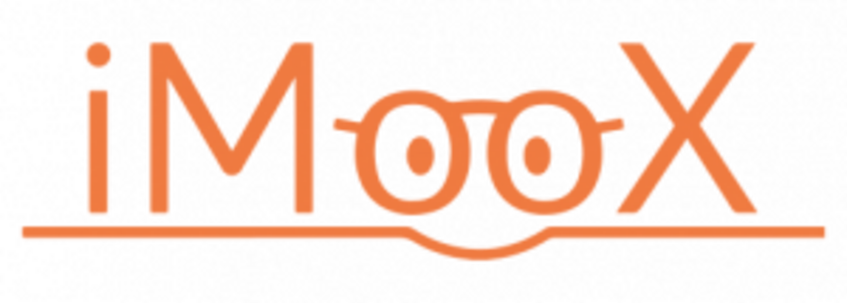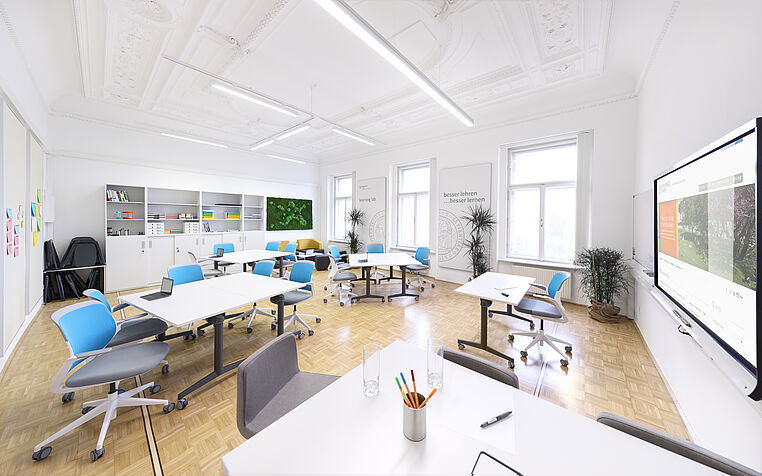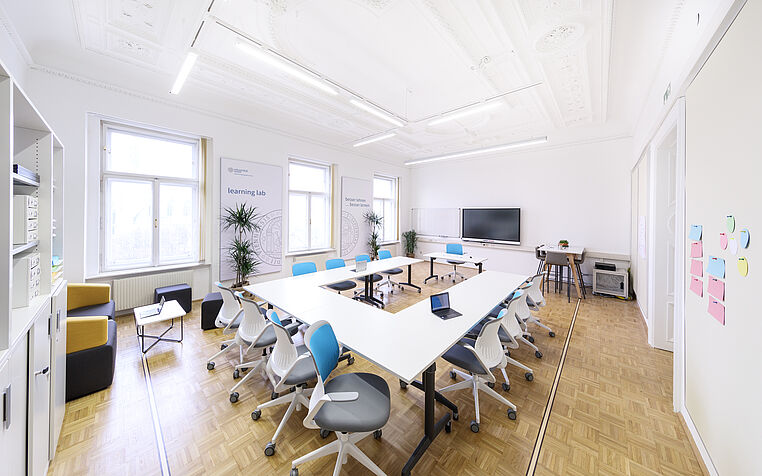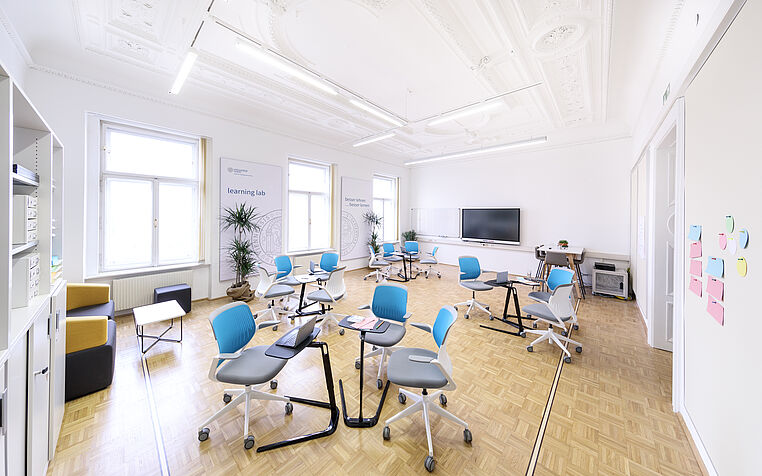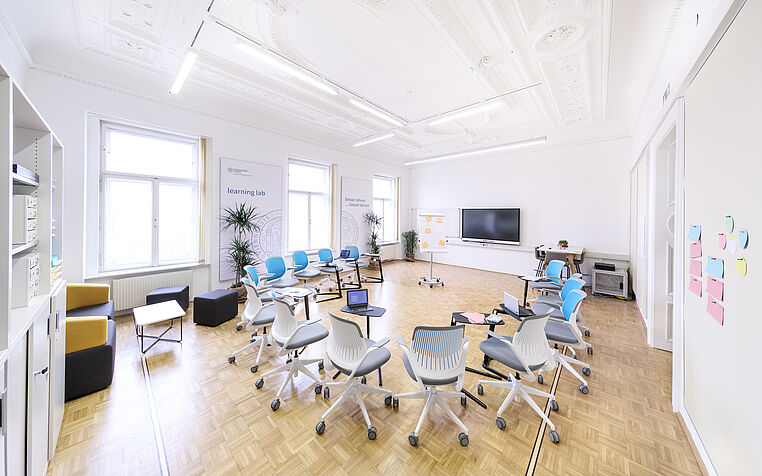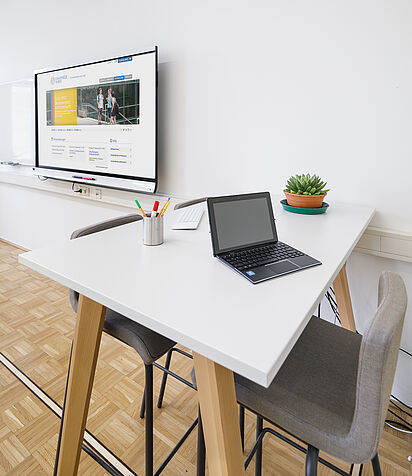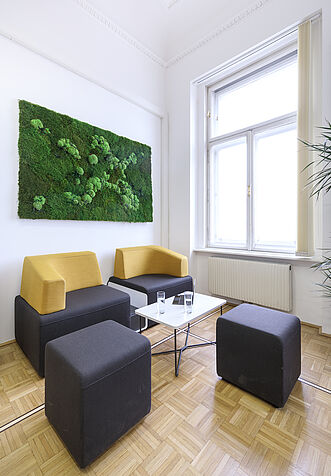Services for digital teaching
Courses and workshops
- The Digital Teaching team offers courses on the following topics as part of the CTL's Teaching Competence Programme:
- Blended Learning
- Flip the Class (Flipped Classroom)
- Teaching with Moodle
- Open Science & Open Education
- You can find these in the programme booklet (PDF on the Teaching Competence pages) if you search for the given topic using Ctrl+F.
- You can also ask for a 2-hour workshop on a topic relevant to you from the Digital Teaching team, taking place at your institute, study programme or faculty. We will then visit you on an agreed date with prepared input, materials and activities (minimum number of participants: 6 people). Write an email to jana.herwig@univie.ac.at and we will discuss your needs.
- For advice that goes beyond individual workshops, we recommend on demand, tailor-made offers.
Teaching Support (e-multipliers)
At some departments and centres, specially trained student assistants work as e-multipliers (e-mus) who can advise and support you in setting up digital learning and exam activities.
Advice on digital teaching
If you need specific advice, please contact
- the ZID e-learning support team for technical questions and
- the CTL Digital Teaching Team for didactic questions
Digital Teaching Wiki
The Digital Teaching Wiki complements the Moodle u:wiki with teaching scenarios, methods for using tools and takes a didactic look at the use of digital tools. In the Teaching Scenarios section, you can learn about implementation options for various didactic considerations and select them according to your preferences. The Methods and Tools section is dedicated more to didactic foundations, which are viewed from the perspective of digital teaching. The pages on Course Models suggest various possibilities for designing courses in digital or hybrid settings. As usual, you will find everything you need for carrying out digital examinations in the Digital Exams section, from study law to didactic approaches for exams. The Organisational Aspects (supplemented by copyright & accessibility) and Resources sections round off the offer. The pages of the Wiki are regularly amended and expanded.
Teaching with Moodle
Moodle offers many possibilities - which ones suit your teaching? Three newly designed courses offer you ideas and assistance directly on the teaching platform itself:
1. The "How to Moodle" course: How do I use Moodle activities in a didactically meaningful way?
- Numerous self-learning offers on topics related to digital teaching, such as supporting group work with digital tools or giving feedback with the help of Moodle
- Versatile Moodle templates for reuse - ready-made Moodle courses (including didactic concepts for their use) that you can integrate into your own courses and use as templates for their design
- Webinar recordings on didactic topics, such as e-moderation or open educational resources for review
- Go to the How to Moodle course!
2. Try out activities in the "Moodle Showroom": How do the individual Moodle activities work?
In this course, you can familiarise yourself with all the activities and materials from a student perspective. We have created examples for each element so that you can get an idea of the underlying functionality. We invite you to try out the learning elements for yourself.
- Go to the Moodle Showroom!
3. The Moodle preview: What's happening in the development of the Moodle platform?
The Moodle Preview is a separate Moodle instance for current and future developments on the Moodle learning platform. You will find there:
- Individual creation of a personal test course to get to know Moodle with your own eyes
- Unlimited opportunity to test all new functions from the student perspective in the sample course
- Comprehensive information on planned changes to the learning platform via the course Moodle Feedback, Insights & Outlooks
- Submit ideas for improvements or further development of Moodle via the feedback form - either personally or anonymously
- Possibility to ask questions about the platform via the moderated exchange forum
- Go to the Moodle preview!
Media production
The CTL helps you produce teaching and learning videos or audio (podcasts) for your teaching.
Production criteria
The following criteria will be used as a basis for the production of teaching and learning videos or audio.
- Usage in courses: A prerequisite for implementation is the usage of the materials in at least one course at the University of Vienna.
- Sustainability: Since the production of a teaching video is associated with high expenditure, preference is given to the production of teaching videos that are sustainable. Sustainability means multiple use in a course over several semesters or in several courses in one semester.
- Reach: How many students can be reached per semester or for the whole use of the media?
- Licensing: Currently, the focus in production is on open educational resources, so at the moment we prefer to produce videos that can be licensed under CC BY or CC BY SA.
Production service
Our production service comprises
- media didactic advice on possible applications and design in teaching,
- advice for the production process,
- recordings in the CTL video or podcast studio and
- media production (including editing, post-production).
If you are interested, please contact us via the media production section of the Servicedesk.
A look inside our studio
Open Educational Resources
With the production of open educational resources (OER), the Digital Teaching team contributes to the free use of educational content from teaching and to the establishment of open practices analogous to research (open access, open data). OER as openly licensed teaching and learning materials are freely reusable and are produced in cooperation with teachers from the University of Vienna at the Center for Teaching and Learning in various levels of detail, including in the form of video formats, teaching and learning materials, but also entire MOOCs (massive open online courses) with interdisciplinary focuses.
In this context, the Center for Teaching and Learning is involved in the digitalisation project Open Education Austria Advanced (duration 2021-2024) in numerous areas of activity.
Use of OER
If you would like to use OER, OERhub.at as a search engine for OER from the Austrian higher education area provides a suitable platform for finding and using videos, texts, documents, etc. of the University of Vienna from the institutional archive system PHAIDRA, TU Graz as well as MOOCs from the Austrian MOOC platform iMooX.at.
Qualification options for OER
We have the following offer for teachers:
- the OER FAQ service answers legal questions on OER in academic teaching, which are used for the OER FAQs and made available for free use.
- Do you have any legal questions about OER in academic teaching? If so, send us a message to fragenzuoer@openeducation.at.
- The OER guide for creating open educational resources and the canvas for creating an open teaching/learning resource are also freely available for re-use.
- Teaching Competence courses on open educational resources as well as on the production of openly licensed teaching videos and other digital teaching topics can be booked in the current course programme.
- The Digital Teaching Wiki also offers information, application scenarios and tools connected with OER for your teaching.
Learning Lab
We offer a seminar room where teachers can test prototypes and develop innovative teaching/learning sequences. The Learning Lab is flexibly furnished with movable chairs and tables, a lounge and a consultation corner, a smartboard incl. webcam, pinboards, a whiteboard, a flipchart and various moderation materials (cards, paper, pens, etc.).
The Learning Lab is available to teachers for testing selected teaching sequences and can be used during the semester (from the 2nd week of the semester) from Monday to Friday (9:00 – 17:00).
Practice teaching sessions are possible throughout the summer opening times from 16 July to 15 September. It is only during the peak periods of our higher education didactics qualifications (15 September to 15 October; 16 February to 15 March) at the beginning of each semester that no teaching sequences can be carried out.
If you are interested, please send us an enquiry with the subject Learning Lab.
Below you will find pictures of the Learning Lab.
Seminarraum der Zukunft
With the Seminarraum der Zukunft in the Main Building, the University of Vienna offers you the opportunity to have new hybrid teaching and learning settings. The mobile facility offers places to sit and work for up to 30 students and can be set up for a wide variety of scenarios, such as group work, plenary discussions or poster sessions. A modern smart board, portable power sources and other technical equipment, such as mobile microphones and stand-alone monitors, help ensure that teachers and students can work successfully. Video conferencing systems support and encourage unrestricted interaction between students – both on-site and digitally.
Further information about the use of the room can be found in the Digital Teaching Wiki.
